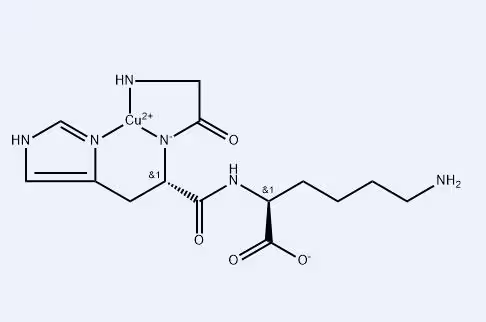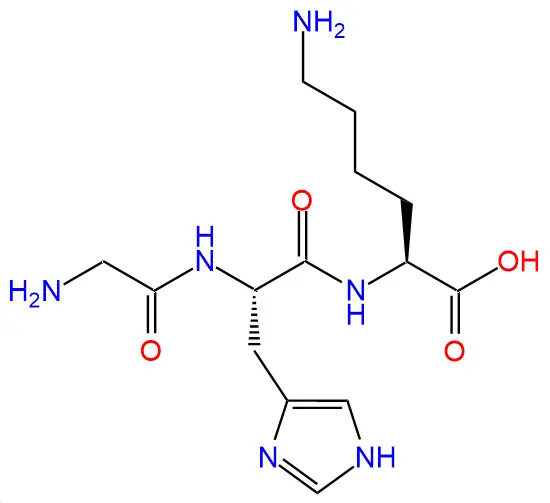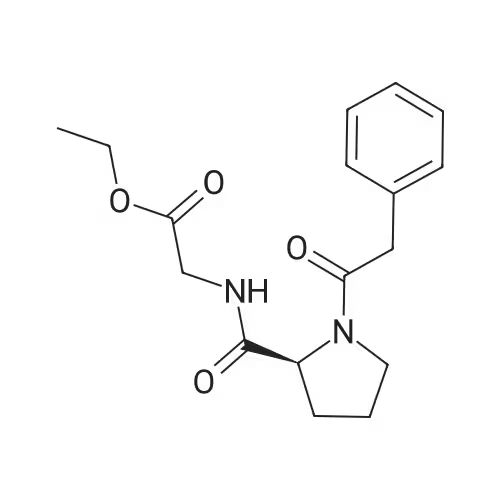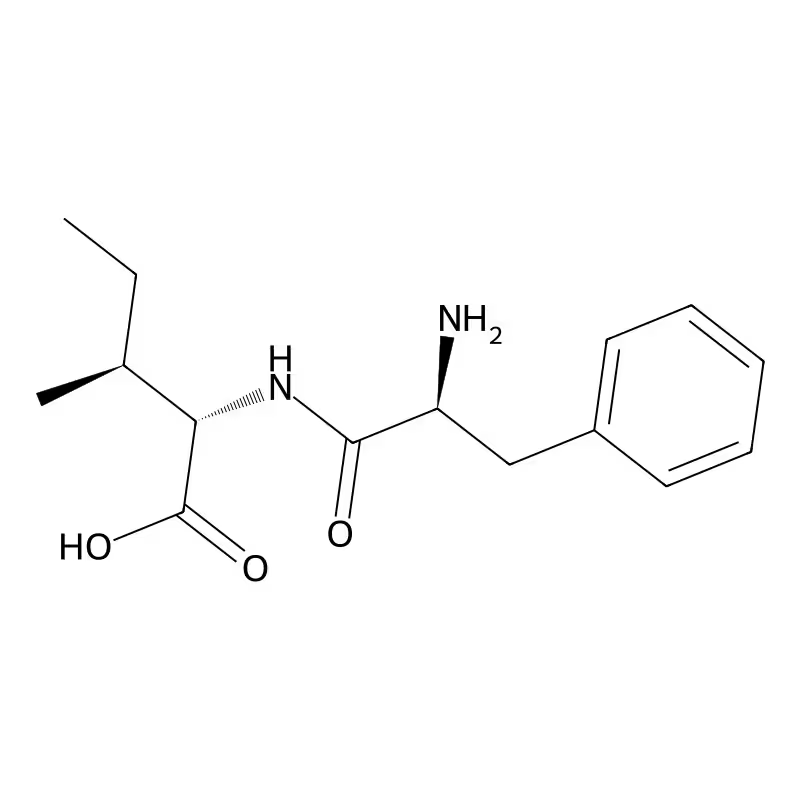Adenosylcobalamin is one of the 2 active forms of vitamin B12, along with methylcobalamin. If you already get enough vitamin B12 from food, you should not need to take the supplement. However, it can still improve some aspects of your health beyond the baseline. Adenosylcobalamin doesn’t seem to have any additional benefits when compared to the other forms of vitamin B12. This article is about the main benefits of adenosylcobalamin, its potential side effects, the best time to take it, and more.
Adenosylcobalamin
What is adenosylcobalamin?
Potential benefits
It is important to note that all of the potential benefits mentioned below are dose-dependent. Generally, the higher the dose, the more pronounced the effects are. However, they do reach a plateau at a certain point. We will discuss the best dosing protocol later in this article.
Many possible benefits fall under the umbrella of ‘correcting a deficiency’ and are therefore not mentioned in the article. If you are deficient, adenosylcobalamin supplements can affect your cognition, performance, and overall health in a remarkably positive way.
Major benefits
Correcting or preventing a B12 deficiency – Vitamin B12 deficiency can be terrible for your health and overall quality of life. Fortunately, a severe deficit is relatively rare. A mild deficiency is much more common and can lead to many problems mentioned later in the article. If you are experiencing symptoms of deficiency or know that your B12 levels are too low, correcting a deficiency is the main benefit of adenosylcobalamin supplements.
Minor benefits
Improved stroke recovery – 1000 mcg daily was able to slightly improve verbal learning in people who’ve had a lacunar stroke.
Protection from hepatitis C – Adenosylcobalamin can minimize the effects of hepatitis C to a certain extent. The caveat is that this benefit has only been shown with intramuscular injections of 5000 mcg daily. This effect may and may not apply to oral supplements at lower doses.
Possible side effects
These side effects are dose-dependent. The risk for them increases (often linearly but sometimes exponentially) as you increase the dose. Some of the side effects only apply to very high doses.
Lung cancer – The biggest concern associated with adenosylcobalamin supplements is an increased risk of lung cancer. This effect applies mainly to smokers, where vitamin B12 supplements can increase the risk by up to 300%. We do not yet know if B12 supplements increase the risk of lung cancer in people who don’t smoke. Fortunately, the same study that discovered the possible 300% increased risk in smokers also found no correlation between vitamin B12 supplements and lung cancer risk in non-smokers. However, we need more studies to know for sure. So far, what we can learn from this is that smokers should avoid B12 supplements, and non-smokers should probably stick to lower doses to stay on the safe side.
Vitamin B12 toxicity – While acute toxicity is rare, taking high amounts of B12 could lead to some health problems other than lung cancer over time. It’s best to avoid very high doses since we don’t yet know whether or not they are safe to take over a long period. Specifically, you want to stay below 1000 mcg a day unless you have a great reason to take more.
Contamination – Contaminated supplements are uncommon in the USA and other well-regulated countries. However, if you wish to buy products from China, India, or other countries without strict regulations, beware that the supplements may be contaminated. Either way, you need to choose the brand you order from wisely. It is highly recommended to check the certificates or read through some reviews for the specific product before you buy it. The FDA (Food and Drug Administration) has the power to regulate dietary supplements but can only do so after they have been on the market for a while. That’s because supplement companies are not obligated to announce to the FDA when releasing a new product on the market. The FDA has to discover the product and test it for potential impurities, which can take a lot of time. During that time, the supplement can be sold on the market even if it’s impure. Also, the supplement companies can change their manufacturers at any time without announcing it to the FDA.
Who should not take adenosylcobalamin?
You should probably avoid taking the supplement if you:
smoke (taking B12 increases the risk of lung cancer by as much as 300% in smokers)
already consume enough vitamin B12 from food
experience a severe adverse reaction after taking the supplement
are willing to take hydroxocobalamin or cyanocobalamin instead (since these seem to be safer, albeit slightly)
Who will benefit the most?
You should consider taking the supplement if you:
experience symptoms of deficiency, or you know you are deficient based on blood tests
supplement with vitamin B9 (a high intake of folic acid or methylfolate can mask vitamin B12 deficiency by preventing anemia but it doesn’t protect against neurodegeneration caused by B12 deficiency; for unclear reasons, taking over 1 mg of vitamin B9 also appears to worsen the neurodegeneration)
are older (5-15% of the elderly have a chronic B12 deficiency and as much as 62% have suboptimal levels of B12)
have a bacterium known as H. pylori in your stomach (around 50% of us have H. pylori and it is perhaps the main reason why so many elderly people are deficient)
have other digestive disorders that make you unable to absorb B12 properly
don’t get enough vitamin B12 from food (the easiest way to find out how much of the nutrient you are getting in your diet is to track your food intake for a while with Cronometer.com)
are on a vegan or vegetarian diet (only animal foods naturally contain B12)
use nitrous oxide (this inhalant, as well as a few other drugs, significantly increases your need for B12)
suffer from pernicious anemia (an autoimmune condition that occurs mainly in the elderly and worsens the absorption of vitamin B12)
have a high budget for supplements (assuming that the supplement doesn’t contain impurities, it appears to be safe in most cases and rarely does more harm than good if you don’t smoke and you stick to regular doses)
drink alcohol (it increases your need for vitamin B12)
take antacids (they worsen B12 absorption)
suffer from AIDS
Other forms of vitamin B12
The forms of vitamin B12 supplements include:
Cyanocobalamin – This is the cheapest and most common form of supplemental B12. It also has the highest shelf-life. The cyanide in cyanocobalamin should not be of concern since the supplement only contains a tiny amount of this toxin. 100 mcg of cyanocobalamin contains around 2 mcg of cyanide. The WHO has set a maximum tolerable intake to 20 mcg/kg, which would be 1400 mcg for a 70 kg person.
Hydroxocobalamin – This is a major form of B12 in food. While hydroxocobalamin isn’t worse than cyanocobalamin, it also doesn’t seem to be much better. Perhaps the only difference is that hydroxocobalamin doesn’t have any cyanide, which theoretically makes it slightly preferred.
Methylcobalamin – This form is one of the 2 active forms of vitamin B12, along with adenosylcobalamin. However, this is not necessarily a good thing as there is a concern that taking only one of the active forms can lead to a depletion of the other. Methylcobalamin may be slightly better for someone with specific problems related to methylation. On the other hand, some people with methylation problems are hypersensitive to the supply of methylated vitamins and might experience mental or emotional side effects from this form.
Adenosylcobalamin – This form doesn’t seem to have any additional benefits when compared to the other forms. Just like methylcobalamin, adenosylcobalamin is one of the active forms of B12. Again, this is not necessarily a good thing since taking only one of the active forms may lead to a depletion of the other form.
Vitamin B12 injections – Intramuscular injections are effective for people with conditions that lead to impaired vitamin B12 absorption, such as Crohn’s Disease. However, even those people can probably get enough B12 from oral supplements through passive absorption, more on which later in this article. Vitamin B12 injections are generally discouraged unless you’ve tried oral supplements and they don’t seem effective at fixing a deficiency. Keep in mind that injecting B12 brings another set of possible side effects not mentioned in this article.
All of the oral forms of B12 are worth consideration. For most people, cyanocobalamin is the best form to take simply because of its price. Hydroxocobalamin is just as good but probably not better in any notable way. Perhaps the only difference is that hydroxocobalamin doesn’t have any cyanide, which theoretically makes it slightly preferred.
As for methylcobalamin and adenosylcobalamin, these can be just as good as cyanocobalamin and hydroxocobalamin but they may need to be kept in balance, and taking just one form might deplete you of the other.
Symptoms of vitamin B12 deficiency
The most common signs of deficiency include:
ruminating on negative thoughts
fainting and dizziness after standing up
regular allergies or allergy-like symptoms
impaired ability to focus and pay attention
irreversible nervous system degeneration
memory loss
changes in personality or mood
delirium or psychosis (only in severe cases)
incorrect sense of position
loss of full control over your movements
walking strangely
tingling, numbness, or the feeling of something crawling on your skin
high histamine levels
optic neuritis
visual disturbances
exercise intolerance
macrocytic, megaloblastic anemia
Keep in mind that these signs are just indications of a deficiency. If you experience some or even most of them, it does not necessarily mean you need more vitamin B12. On the other hand, some people may be deficient even though they are completely asymptomatic.
With that said, if you experience many or most of these symptoms, there is a high chance that you are not getting enough vitamin B12. The more of these symptoms you have and the more severe they are, the more likely you are to have a deficiency.
How much adenosylcobalamin should you take?
Adenosylcobalamin and vitamin B12 in general is possibly the trickiest nutrient/supplement to dose correctly. This section of the article is rather long but important to understand if you wish to find the best dose for you.
Most guides and articles on the internet give a very simplified answer, such as 2.4 mcg or 500 mcg. This makes it very easy to choose a dose that’s either too high or not high enough. Many things influence how much vitamin B12 you need. Also, it is not only about how much B12 you take but also about when and how often you take it.
The RDA (recommended daily allowance) for this nutrient is 2.4 mcg. This amount should be enough to avoid symptoms of deficiency, assuming you can absorb this amount.
You can absorb around 1.5-2 mcg at once through specific absorption and 1-2% of the rest passively. This is a critical thing to understand.
In a practical sense, this means that if you eat or take 1.2 mcg twice a day, you will absorb all of it, assuming you don’t suffer from a specific digestive disorder that makes you poor at absorbing vitamin B12. If you, however, consume the same amount (2.4 mcg) at once, you will only absorb around 1.5-2 mcg + 0.008-0.018 mcg passively.
It is not hard to absorb enough vitamin B12 if you split the dose to 2-3 times a day or eat 2-3 meals rich in vitamin B12. However, if you wish to get enough vitamin B12 by one daily dose, you will have to take around 50-100 mcg. This is because you absorb 1.5-2 mcg through specific absorption and therefore need to get the other 0.4-0.9 mcg through passive absorption.
Therefore, a single daily dose of 50-100 mcg of adenosylcobalamin appears to be the best way to go for most people. This amount should provide enough B12 without meaningful side effects.
If you are willing to take vitamin B12 at 2 separate times in a day, as little as 1.2 mcg in one dose should be enough. This is a less convenient strategy but it may be better for minimizing the side effects correlated with taking high doses.
The case for megadosing is that some people are really bad at digesting vitamin B12. Again, even if you were unable to digest vitamin B12 at all, around 1-2% of vitamin B12 from the supplement will bypass the specific B12 absorption mechanism and get absorbed by passive diffusion. Therefore, you’d have to take 120-240 mcg daily to absorb 2.4 mcg of B12. The higher end of this dose (240 mcg daily) should be enough even if all odds are against you and you have the worst ability to digest B12.
Another approach you could take to get enough vitamin B12 would be megadosing with 2000 mcg weekly. This would give you 20-40 mcg through passive absorption, which is more than enough. This strategy is more convenient. The issue with it is that you have to take 2000 mcg weekly, as opposed to 700 mcg if you take 100 mcg once a day, or as little as 16.8 mcg if you’re willing to spread the dose to multiple doses a day. The higher the dose you take, the higher the side effects, which is why weekly dosing is not the best strategy.
Since weekly dosing increases the risk for side effects (since you have to take a higher dose) and taking multiple very low doses a day is impractical, daily dosing of 50-100 mcg of adenosylcobalamin appears to be the best way to go for most people.
However, if you come across supplements that provide 10 mcg or less, take one pill/capsule twice a day. This is the safest way to ensure you’re getting enough B12 through supplements if you know you absorb the vitamin well through specific absorption.
To complicate things even further, shooting for 3.5-7 mcg may be slightly better than 2.4 mcg. While the amounts mentioned above should provide enough B12 to avoid deficiency, additional B12 may provide slightly more benefits. For example, some cognitive studies have shown a bigger effect when as much as 1 mg (1000 mcg) was used instead of smaller doses.
This is especially the case for people who take nitrous oxide or antacids, drink alcohol, have Chron’s disease, H. pylori, old age, or AIDS. All of these increase your need for vitamin B12, some of them significantly.
However, taking more also increases the risk of potential side effects. While the upper safety limit has not been established, high doses may cause problems if you take the supplement for a prolonged period. Probably the biggest concern when it comes to taking high doses of vitamin B12 is lung cancer. This is why it’s best to stay below 1000 mcg (1 mg) a day.
The higher the dose you take, the higher the risk for side effects. Taking more than 1000 mcg daily should not be necessary and is not recommended unless you have a great reason to do so.
To summarize, 50-100 mcg is the best daily dose to take for most people. You may derive slightly more benefits from doses as high as 1000 mcg daily but the higher the dose, the higher the risks.
Food sources of vitamin B12
Vitamin B12 is almost exclusively found in animal foods. The only plant foods that can provide some B12 are a few types of mushrooms and algae. Specifically, black trumpet, chanterelle, and shiitake for mushrooms and green or purple laver (nori) for algae. Other plant-based foods do not contain vitamin B12 unless they are fortified with it.
As little as 8 grams of liver, clams, oysters, or nori should give you enough B12 for the day. The same can be said about 300 grams (11 oz) of meat, dairy, black trumpet, chanterelle, or shiitake mushrooms.
While eggs also contain a good amount of B12, the B12 from eggs is not absorbable.
Keep in mind that you can only absorb 1.5-2 mcg of vitamin B12 at once and an additional 1-2% passively. What matters is how much B12 you absorb, not just how much you consume.
The easiest way to find out how much vitamin B12 you are getting in your diet is with Cronometer.com – this free app allows you to track all vitamins, minerals, and more.
Best time to take adenosylcobalamin
Adenosylcobalamin is water-soluble, which means you don’t have to take it with food to absorb it well.
The main thing to take into consideration is that you can only absorb so much adenosylcobalamin at once. Specifically, you can only absorb 1.5-2 mcg actively and 1-2% of the amount you take passively. Thus, taking 50 mcg twice a day would give you more vitamin B12 than 100 mcg once a day (4-6 mcg would get absorbed as opposed to 2.5-4 mcg)
What’s great about vitamin B12 is that it can stay in your liver for up to 30 years. Therefore, you don’t have to take the supplement regularly as long as you’re getting enough in the long run.
Whether you take the supplement in the morning or the evening doesn’t matter. It does not interrupt your sleep in any way.
Certificates
2.SGS/CIQ/CQC certification for stringent quality control
3.Accredited with HALAL, KOSHER, HACCP, BRC FOOD, GMP certifications
4.ISO 22000:2005 certified, ensuring extensive food safety management systems

FAQ
As a leading Adenosylcobalamin manufacturer and supplier from China, our products stand out for their high quality and composition.
2. Can you supply bulk quantities for businesses?
Yes, we are a B2B supplier of Adenosylcobalamin, specializing in bulk Adenosylcobalamin powder and isolate. As a premium Adenosylcobalamin isolate supplier and wholesaler, we can meet large-scale demands efficiently.
3. Are your products suitable for vegans and those with allergies?
Absolutely. Our Adenosylcobalamin, free from major allergens. This makes it an ideal choice for vegans and those with dietary restrictions.
4. How do you ensure the quality of your Adenosylcobalamin products?
We adhere to strict ISO22000 & quality control standards. Being a high-quality Adenosylcobalamin manufacturer, we ensure that every batch of Adenosylcobalamin, whether isolate, peptide, meets the highest quality standards.
5. Do you offer Adenosylcobalamin for international clients?
Yes, as a Adenosylcobalamin exporter from China, we provide Adenosylcobalamin products globally, including Adenosylcobalamin peptide and isolate. Our efficient distribution network ensures timely delivery worldwide.
6. Are your products cost-effective for wholesale purchase?
Certainly. We pride ourselves on being an affordable Adenosylcobalamin manufacturer, offering the best Adenosylcobalamin prices for wholesale and bulk purchases.
7. Can I get a customized Adenosylcobalamin formulation?
Yes, our R&D team can work with you to create a custom formulation, making us a natural Adenosylcobalamin peptide supplier that caters to specific client needs.
8. What is the advantage of choosing your Adenosylcobalamin isolate?
Our pure Adenosylcobalamin isolate is of premium quality, ensuring content and excellent solubility, making it a preferred choice for various applications.
9. How do you support business customers in the Adenosylcobalamin market?
We offer comprehensive support, including 24/7 customer service, and are a reliable Adenosylcobalamin raw material producer. Our expertise as a Adenosylcobalamin peptide exporter also benefits businesses looking for high-grade products.




